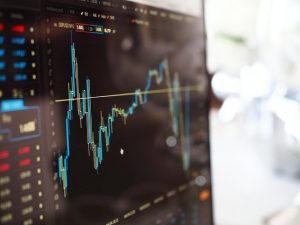An index, from a financial market context, is a metric of the price movement and performance of a group of stocks on an exchange. For instance, the FTSE 100 index, which is one of the more popular indices traded, monitors the price fluctuations of 100 of the largest businesses on the London Stock Exchange. As with any type of financial asset, trading indices involve a certain level of risk that can be minimized by learning exactly what are indices and how to trade them safely.

What Is an Index?
According to Capital.com, “an index is calculated from the price of its constituent stocks, typically as a weighted average. Any index lists the criteria a company must meet to qualify for inclusion. By tracking the performance of a large group of shares, an index aims to reflect the state of a broad industry sector or a country’s stock market as a whole.”
Some popular stock indices include the Dow Jones Industrial Average(DJIA), which is made up of 30 large-cap stocks in the US and weighed by price, and the S&P500 Index, which tracks the value of 500 large-cap stocks in the country that’s weighted by market capitalization. Note that indices can be calculated differently, with some using the market cap size of the company and others using the stock’s price.
Note that trading indices are different from trading stocks or other assets in that you cannot directly buy or sell the asset based on the “cash price”. Indices are purely informative and serve as a standard for the country’s financial market. In order to trade indices, you’ll have to buy into derivative products, including futures, options, and CFDs, that allow traders to add stock indices to their portfolios.
Here are some paths that traders commonly take to start trading indices:
Stock market index. Trading stock indices allow investors to gain exposure to broader asset classes without needing to analyze the financial data of hundreds of individual companies. You can add stock indices to your portfolio by using investment funds, such as tracker funds and active funds, that manage the transactions on your behalf.
ETF: Exchange-traded funds are becoming increasingly popular for traders to get their foot in the door of index funds. ETFs, such as Vanguard, is managed by a fund manager, so results are primarily driven by the fund manager’s performance and chosen strategies. Since ETFs are traded on an exchange, price shifts constantly during the trading session, unlike a mutual fund where the price is fixed once a day.
CFD: Contracts for the difference is another way you can trade global or regional market indices. It’s an agreement between two parties – the trader and broker – wherein one side agrees to pay the other for the difference in the price of an underlying asset. The trader attempts to profit from the price difference between the opening and closing price of the position.
Now that you know what are indices and how to trade them, you’ll want to look for a strategy next. You can choose between a technical or fundamental approach for gauging the value of different index funds in order to position yourself accordingly.
